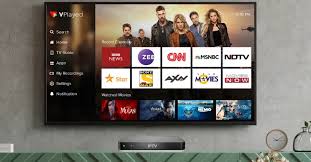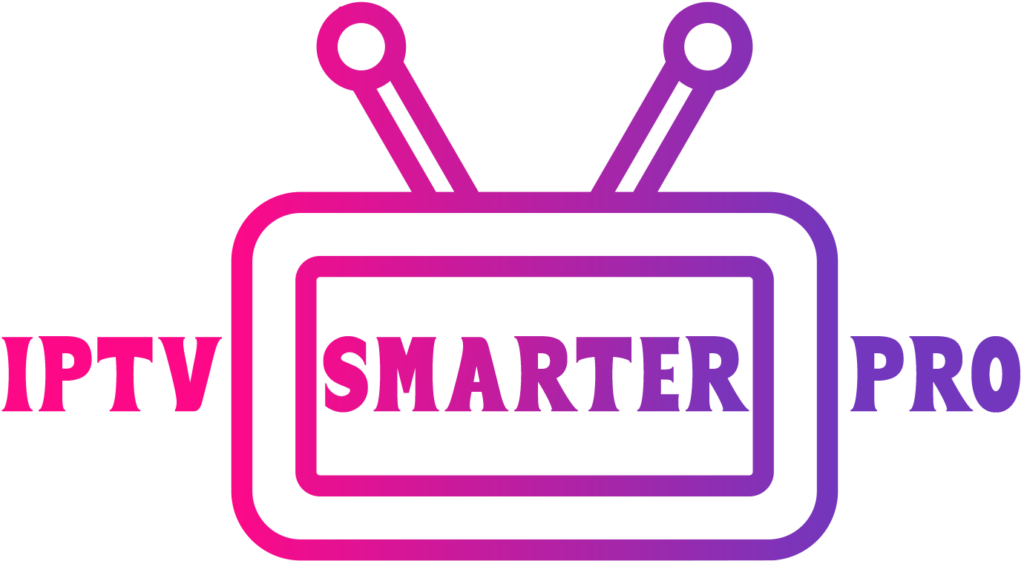Web Convention TV (IPTV), ordinarily known as IP televizija, is a framework where TV administrations are conveyed utilizing the Web convention suite over a parcel exchanged organization like a LAN or the Internet, instead of being delivered through traditional terrestrial, satellite signal, and cable television formats. Unlike downloaded media, IPTV offers the ability to stream the source media continuously, resulting in a media stream provided to the viewer.
“IP Televizija, or Internet Protocol Television, allows users to stream live TV channels and on-demand content over the internet. It offers high-definition video quality, customizable playlists, and personalized content recommendations. Compatible with various devices, IP Televizija provides a seamless and convenient way to enjoy your favorite shows and movies anytime, anywhere”
Discover the future of entertainment with IP Televizija! Stream live TV channels, on-demand movies, and series with high-definition quality and personalized recommendations.
Types of IPTV Services!
Live Television:
Live television through IPTV mirrors the traditional broadcast TV experience by streaming channels in real-time as they air. This service allows viewers to watch live events, news, sports, and entertainment programs as they are broadcasted.
The key advantage of live TV is the immediacy and the ability to participate in real-time viewing experiences, such as live sports events or breaking news.
IPTV providers often offer a broad selection of live channels, which can include popular international and local channels, ensuring that users have access to a wide array of live content.
Time-Shifted Media:
Time-shifted media is a valuable feature of IPTV that provides viewers with the flexibility to watch content on their own schedule. This includes services like catch-up TV and start-over TV. Catch-up TV allows users to watch programs that have already been broadcasted, typically within a specified time window after the original airing.
This is perfect for viewers who missed the live broadcast of their favorite shows. Start-over TV, on the other hand, enables viewers to restart a live program from the beginning, even if they tune in halfway through. These features enhance viewing convenience, ensuring that viewers do not miss their preferred programs.
Video on Demand (VOD):
Video on Demand (VOD) is one of the most popular and defining features of IPTV services. VOD provides a library of video content that users can access and watch at any time. This includes movies, TV series, documentaries, and special programs. Unlike live television, VOD does not require viewers to adhere to a broadcast schedule, offering ultimate flexibility and convenience.
Users can pause, rewind, or fast-forward through content, making it a highly customizable viewing experience. Popular VOD services like Netflix, Hulu, and Amazon Prime Video have set high standards by offering extensive and diverse content libraries, catering to a wide range of viewer preferences.
Advantages of IPTV!

Cost-Effectiveness:
One of the primary advantages of IPTV is its cost-effectiveness compared to traditional television services. IPTV subscriptions are typically more affordable and offer a variety of packages that cater to different budgets and viewing preferences. Unlike cable or satellite TV, which often come with hidden fees and long-term contracts, IPTV services provide more transparent pricing structures.
This allows users to select the content and channels they desire without paying for unnecessary extras. Additionally, the competitive nature of the IPTV market means providers frequently offer promotions and discounts, making it even more economical for consumers.
Flexibility and Convenience:
IPTV provides unparalleled flexibility and convenience, revolutionizing how viewers consume content. Unlike traditional TV, which requires users to adhere to fixed broadcasting schedules, IPTV allows for on-demand viewing.
This means users can watch their favorite shows, movies, and live events whenever they want. Furthermore, IPTV televizija services are accessible on multiple devices, including smartphones, tablets, smart TVs, and computers, enabling viewers to watch content on the go.
Features such as pause, rewind, and fast-forward add to the convenience, allowing users to control their viewing experience fully. This level of flexibility ensures that viewers are not restricted by time or location, enhancing overall user satisfaction.
High-Quality Streaming:
IPTV is synonymous with high-quality streaming, offering viewers a superior viewing experience. With advancements in broadband technology, IPTV televizija services can deliver high-definition (HD) and even 4K resolution content, providing crystal-clear visuals and immersive audio quality.
Unlike traditional broadcasting methods that may suffer from signal degradation and interference, IPTV televizija relies on a stable internet connection to ensure smooth and uninterrupted streaming.
The use of advanced compression techniques and efficient data transmission protocols minimizes buffering and latency issues, allowing for a seamless viewing experience. This high-quality streaming capability makes IPTV an attractive option for viewers seeking premium content without compromising on picture and sound quality.
Challenges and Limitations!
Technical Issues:
One of the primary challenges facing IPTV televizija services is technical issues that can affect the viewing experience. IPTV relies heavily on a stable and high-speed internet connection to deliver content seamlessly. Any fluctuation in bandwidth or internet speed can result in buffering, lagging, or even complete service interruption. Additionally, not all regions have access to the high-speed internet required for optimal IPTV televizija performance, limiting its accessibility.
Network congestion, especially during peak viewing times, can also degrade the quality of the stream. Furthermore, the hardware and software used by the service provider and the viewer’s device can impact the overall performance, with outdated equipment potentially leading to compatibility issues and reduced streaming quality.
Legal and Regulatory Concerns:
Legal and regulatory concerns present significant challenges for the IPTV televizija industry. The legality of IPTV services often varies by region, with different countries enforcing varying regulations regarding content distribution and intellectual property rights. Unauthorized IPTV services, which may offer pirated content, are a major issue, leading to legal crackdowns and enforcement actions against providers and users alike.
These illegal services not only undermine legitimate providers but also expose users to potential legal repercussions and cybersecurity risks. Moreover, navigating the complex web of copyright laws and licensing agreements is a daunting task for legitimate IPTV televizija providers, often resulting in restricted access to certain content in specific regions.
Compliance with regulatory standards, including data protection and consumer rights laws, adds another layer of complexity, requiring constant vigilance and adaptation to evolving legal landscapes.
IPTV vs. Traditional TV!

The comparison between IPTV televizija and traditional TV highlights several significant differences that shape the viewing experience. While traditional TV relies on broadcasting signals via cable, satellite, or antenna, IPTV utilizes internet protocol to deliver content directly to users’ devices. This distinction results in varying degrees of accessibility, as IPTV offers greater flexibility in terms of viewing options and device compatibility.
Not at all like customary television, which frequently requires committed equipment and fixed telecom plans, IPTV televizija permits clients to get to content on-request from a large number of gadgets, including cell phones, tablets, PCs, and shrewd televisions. Furthermore, IPTV enables interactive features such as pause, rewind, and fast-forward, empowering users to control their viewing experience fully. Overall, the shift towards IPTV represents a paradigm shift in how audiences consume media, offering greater convenience, flexibility, and interactivity compared to traditional TV.
Cost Comparison:
When comparing the costs associated with IPTV televizija and traditional TV services, several factors come into play that influence the overall affordability and value proposition for consumers. While traditional TV services may require users to purchase expensive hardware such as satellite dishes or cable boxes and commit to long-term contracts, IPTV typically offers more transparent pricing structures and flexible subscription options. IPTV services often come in tiered packages that cater to different budgets and viewing preferences, allowing users to select the content they desire without paying for unnecessary extras.
Additionally, IPTV televizija eliminates the need for costly infrastructure maintenance and distribution networks, resulting in lower operational costs for providers, which can be passed on to consumers in the form of competitive pricing. Overall, IPTV offers a more cost-effective alternative to traditional TV, providing users with greater value for their entertainment budget.
Content Variety:
One of the key advantages of IPTV televizija is the vast array of content options available to viewers, offering a diverse selection of channels, shows, movies, and live events from around the world. Unlike traditional TV, which may be limited by geographical constraints and broadcasting schedules, IPTV leverages the internet to deliver content from a multitude of sources, including global networks, regional channels, and niche content providers.
This extensive content library caters to diverse interests and preferences, ensuring that viewers have access to a wide range of entertainment options tailored to their tastes. Furthermore, IPTV televizija services often offer customizable channel packages and on-demand content libraries, allowing users to personalize their viewing experience and discover new content easily. Whether it’s sports, news, movies, or documentaries, IPTV provides unparalleled content variety that appeals to audiences of all ages and interests.
User Experience:
The user experience is a critical aspect of IPTV that distinguishes it from traditional TV services, offering viewers a more interactive and personalized viewing experience. Unlike traditional broadcasting methods, which rely on linear programming and fixed schedules, IPTV empowers users to control when, where, and how they consume content.
With features such as on-demand streaming, time-shifting, and interactive menus, IPTV provides greater flexibility and convenience, allowing users to watch their favorite shows and movies on their own terms. Furthermore, IPTV services often incorporate advanced recommendation algorithms and personalized playlists, helping users discover new content based on their viewing history and preferences.
Setting Up IPTV!
Necessary Equipment:
Setting up IPTV requires minimal equipment, making it accessible to a wide range of users. The essential components include a reliable internet connection, a compatible device for streaming, and an IPTV subscription.Most IPTV suppliers offer similarity with different gadgets, including shrewd televisions, streaming boxes, cell phones, tablets, and PCs.
Additionally, users may need a router or modem to establish a stable internet connection. Some IPTV services may also require a set-top box for traditional TV viewing, although many modern devices come equipped with built-in IPTV capabilities. Overall, the necessary equipment for setting up IPTV is straightforward and readily available, ensuring a hassle-free installation process.
Step-by-Step Setup Guide:
Setting up IPTV is a clear cycle that can be finished in a couple of basic advances.Firstly, users need to ensure they have a stable internet connection with sufficient bandwidth for streaming. Next, they should select a compatible device for accessing IPTV content, such as a smart TV, streaming box, or mobile device. Once the hardware is in place, users can proceed to subscribe to an IPTV service of their choice.
During the subscription process, users may need to provide their personal details and payment information. After subscribing, users will receive login credentials to access the IPTV service. Finally, users can download the IPTV app or access the service through a web browser, log in using their credentials, and start enjoying their favorite content. Overall, the step-by-step setup guide ensures a smooth and hassle-free experience for users looking to access IPTV services.
Popular IPTV Providers!

Numerous IPTV providers have gained popularity due to their extensive channel offerings, reliable service, and user-friendly interfaces. One such provider is IPTV Smarters, known for its intuitive app design and vast library of channels from around the world. Xtream Codes IPTV is another popular choice, offering a wide range of channels, including sports, movies, and international content.
GSE Smart IPTV is favored for its compatibility with various devices and customizable features, allowing users to tailor their viewing experience to their preferences. These providers have garnered a loyal user base due to their robust platforms and comprehensive channel selections, making them go-to options for IPTV enthusiasts.
Global IPTV Providers:
Global IPTV providers cater to a diverse audience by offering a wide array of channels and content from around the world. Netflix stands out as one of the leading global IPTV providers, offering a vast library of movies, TV shows, and original content across multiple languages and genres. Amazon Prime Video is another prominent player in the global IPTV market, providing subscribers with access to a vast selection of movies, series, and exclusive content.
Additionally, Disney+ has emerged as a key player, offering a diverse range of family-friendly entertainment options. These global IPTV providers have achieved widespread popularity by delivering high-quality content to audiences worldwide, transcending geographical boundaries.
Local IPTV Services:
Local IPTV services cater to specific regions or communities, offering tailored content and programming that reflects local interests and preferences. Hulu + Live TV is a popular choice among U.S. viewers, providing access to live and on-demand content from major networks and local channels. In the UK, BBC iPlayer offers a range of live and catch-up TV from the British Broadcasting Corporation, including news, drama, and documentaries.
Foxtel Now is a leading provider of IPTV services in Australia, offering live TV, sports, and entertainment channels tailored to the Australian market. These local IPTV services offer localized content and programming, providing viewers with a unique viewing experience that resonates with their cultural and regional identities.
Legal Aspects of IPTV!
Copyright Issues:
One of the significant legal aspects of IPTV revolves around copyright issues, particularly concerning the distribution and usage of copyrighted content. Since IPTV services deliver audiovisual content over the internet, they must navigate a complex landscape of copyright laws and regulations.
Unauthorized distribution or streaming of copyrighted material without proper licensing agreements can lead to legal repercussions for IPTV providers and users alike. To mitigate copyright infringement risks, legitimate IPTV services obtain licenses from content owners and adhere to copyright laws.
Additionally, many IPTV providers implement robust content protection measures, such as digital rights management (DRM) technologies, to safeguard against unauthorized access and distribution of copyrighted content.
Regulatory Compliance:
Ensuring regulatory compliance is another crucial legal aspect of IPTV. IPTV providers must adhere to various regulatory frameworks and industry standards governing telecommunications, broadcasting, and internet services.
These regulations may vary significantly from one jurisdiction to another, requiring IPTV operators to navigate a complex web of legal requirements. Compliance obligations may include obtaining licenses or permits, adhering to content censorship rules, protecting user privacy, and implementing measures to prevent illegal activities such as piracy and fraud.
By maintaining regulatory compliance, IPTV providers can operate lawfully and build trust with both regulators and consumers, ensuring a sustainable and legally compliant business model.
FAQS
What are the benefits of IPTV over traditional TV services?
IPTV offers several advantages over traditional TV services, including cost-effectiveness, flexibility in content selection, and the ability to access content on multiple devices. Additionally, IPTV provides high-quality streaming and customizable viewing options tailored to individual preferences.
What equipment do I need to set up IPTV at home?
Setting up IPTV typically requires a stable internet connection, a compatible device such as a smart TV, computer, or IPTV set-top box, and a subscription to an IPTV service provider. Some providers may also require additional equipment such as a modem or router for internet connectivity.
Is IPTV legal?
The legitimateness of IPTV administrations shifts relying upon the ward and the substance being streamed. While IPTV itself is a legitimate technology, the distribution of copyrighted content without proper authorization may infringe upon intellectual property rights and violate copyright laws. It is essential to use licensed IPTV services and adhere to legal regulations when streaming content.
What are the potential technical issues with IPTV?
Like any online streaming service, IPTV may encounter technical issues such as buffering, latency, or service interruptions due to network congestion or server issues. These issues can often be mitigated by ensuring a stable internet connection, optimizing network settings, and using compatible devices.
Can I access international channels with IPTV?
Yes, one of the advantages of IPTV is the ability to access a wide range of international channels from around the world. Many IPTV service providers offer packages that include channels from various countries, allowing users to enjoy content in multiple languages and genres.
What are some popular IPTV providers?
There are several reputable IPTV providers offering a variety of packages and channel selections to cater to different preferences and budgets. Some popular IPTV providers include Netflix, Hulu, Sling TV, Amazon Prime Video, and IPTV Smarters.
How can I ensure the security and privacy of my IPTV service?
To enhance the security and privacy of your IPTV service, it is essential to choose a reputable provider that employs encryption protocols and adheres to strict privacy policies. Additionally, users should avoid sharing their IPTV login credentials and regularly update their devices and software to protect against potential security vulnerabilities.
Conclusion:
“IPTV, or Internet Protocol Television, represents a significant evolution in the way we consume television content. With its cost-effectiveness, flexibility, and high-quality streaming capabilities, IPTV offers users a superior viewing experience compared to traditional TV services. Despite facing challenges such as technical issues and legal concerns, IPTV continues to gain popularity globally, providing access to a diverse array of content from around the world“
Read more:

